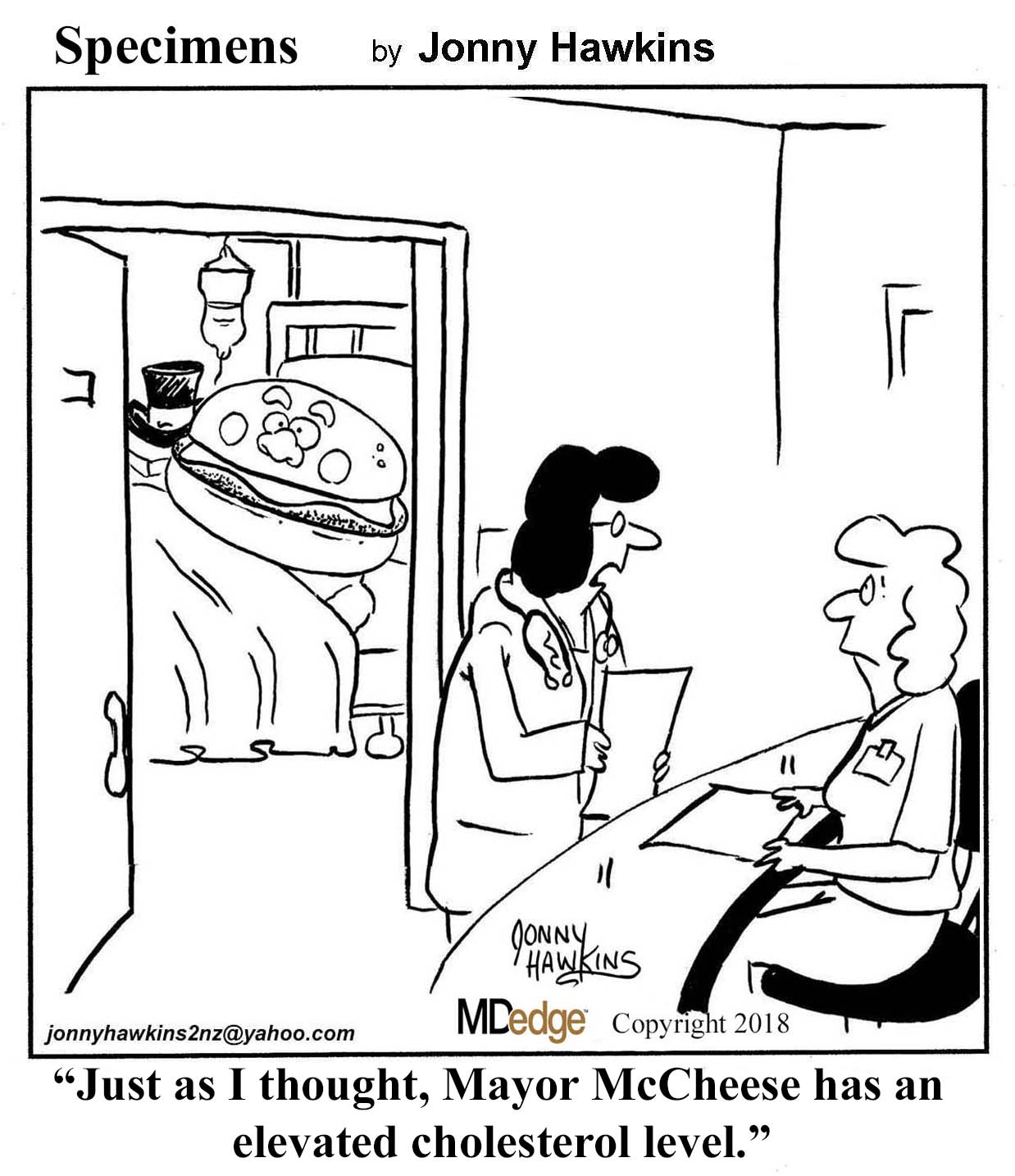Epic tweets
Need a little break from seeing all your patients? Hop on Twitter for a few minutes – specifically, the Epic parody account.
A frustrated but hilarious physician somewhere on the East Coast created the account a month ago to brighten busy days and help other physicians connect through a shared hatred of Epic, the electronic health records system.
The account’s bio states: “My goal is to create confusion for doctors. I will not rest until doctors do nothing but click buttons. Eye contact is evil.” In continuing with this theme, the account dedicates many Tweets to decrying patient-doctor interaction and encouraging computer-doctor interaction instead. And it rails against the “shaming of data-entry clerks.”
If you, too, are frustrated with Epic or your own EHR system, submit them to @EPICEMRparody with the hashtag #EPICfail. Join the club.
Pour me another, bartender
All the beauty of alcohol without the soul-crushing hangover the next day? I’ll take two on the rocks, please.
For the last decade, visionary, scientist, and soon-to-be hero David Nutt, DM, has been working on a formula for synthetic alcohol that gets you nice and tipsy, but spares you the hangover. Dr. Nutt has created a compound he calls “alcosynth” that triggers a buzz but doesn’t activate the brain receptors that cause the symptoms of hangover.
Dr. Nutt is confident that his alcohol will hit liquor stores in just 5 years. As the director of neuropsychopharmacology at the Imperial College London and a wine bar owner, he knows a bit more than the average person about alcohol and brain receptors. He realized that the brain’s GABA receptors can be stimulated by alcohol and developed his product, Alcarelle, to simulate that stimulation without causing headaches, nausea, dizziness, and other hangover symptoms.
Dr. Nutt guards his process pretty tightly, however – the secret to hangover-free booze is as precious as a golden ticket to the Wonka factory. Everyone’s going to want to get their hands on it!
Don’t just do something, lie there
As the Trump administration tries to implement work requirements for food stamps and Medicaid, the Artificial Gravity Bed Rest Study offers another way to get paid for doing nothing.
This joint effort between NASA, the European Space Agency, and the German Space Agency will recreate outer space conditions right here on earth – in Cologne, Germany, to be exact – by having participants lie down for 60 days with their heads 6 degrees below their feet, causing fluids in the body to shift toward their heads and reproducing conditions experienced by astronauts in the absence of gravity.
Unsurprisingly, not just anyone will be considered: Participants have to be women aged 24-55 years with body mass indexes of 19-30 kg/m2 who speak German and don’t smoke. Test subjects have to bathe, eat (the project’s website mentions pancakes), and go to the toilet while lying down, and they will spend 30 minutes a day in the human centrifuge – that’s the artificial gravity part of the study – to counteract the effects of weightlessness. They also will receive an expense allowance of about $18,500.
So, you can earn almost 20 grand as you get waited on, stuffed with pancakes, and massaged while catching up on your reading and relaxing for 2 months. Hmm, we may have gotten this backwards with that work requirement remark. Sounds more like a trial membership into the “1%,” so be sure to keep track of your portfolios.
That’s why mosquitoes don’t go to clubs
There’s not a whole lot of positive things that can be said about mosquitoes, spreaders of such wonderful diseases such as malaria and Zika. But we’ll give them this: They have good taste in music.
Those musical standards were the subject of a study published in Acta Tropica, in which female mosquitoes were starved for 12 hours, introduced to a fresh hamster for an all-you-can-eat buffet and a single male mosquito for reproductive purposes, then subjected to either silence or some extremely loud dubstep music, courtesy of the artist Skrillex. The researchers’ goal was simple: Is loud music an “environmentally friendly” repellent alternative?
In a blow to the egos of dubstep fans everywhere, not only did the mosquitoes forced to listen to Skrillex take longer to start sucking blood from the hamster, they sucked out less blood and made fewer attempts to reproduce with the lone male mosquito. According to the researchers, the so-called music’s aggressive vibrations disrupts the mosquito’s ability to fly and synchronize wing beats.
This is really a good news/bad news situation here. Good news, we’ve found an easy way to drive off a very annoying insect. Bad news, we have to suffer through loud dubstep music. Personally, we’ll take the mosquitoes.





